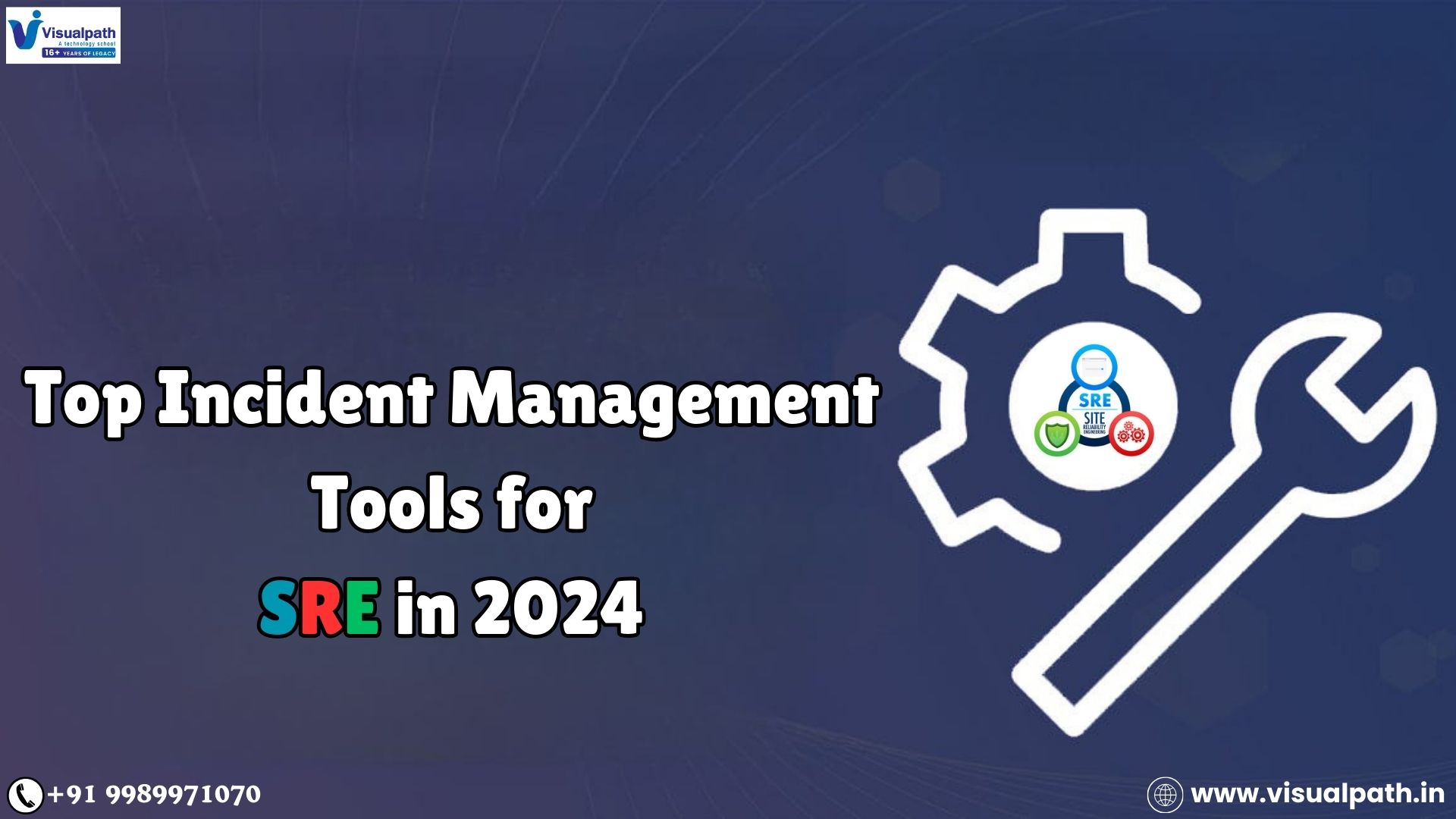
Site Reliability Engineering Training: Top Incident Management Tools for SRE in 2024
Introduction:
Site Reliability Engineering Training equips professionals with the skills to manage system reliability, scalability, and performance while addressing incidents efficiently. Incident management is a critical practice in Site Reliability Engineering (SRE), and as we step into 2024, a variety of innovative tools are emerging to streamline this process. From monitoring systems to alerting platforms and on-call management solutions, SREs rely on these tools to minimize downtime and ensure seamless user experiences. This article explores the tools used for incident management in 2024, highlighting their functionalities and importance for SRE Course professionals.
What is Incident Management in SRE?
Incident management is the process of identifying, addressing, and resolving unplanned interruptions or reductions in the quality of IT services. In the context of SRE, this process involves proactive monitoring, rapid response, and efficient resolution of incidents to maintain system reliability. Key aspects of incident management include:
- Monitoring and Detection: Identifying anomalies or failures through monitoring tools.
- Alerting: Ensuring the right team is notified promptly.
- Incident Response: Diagnosing and mitigating the root cause.
- Post-Incident Analysis: Learning from incidents to prevent future occurrences.
To effectively manage incidents, SREs leverage a wide array of tools that integrate with Site Reliability Engineering Training, enabling professionals to enhance their skills and manage complex environments.
Top Tools for Incident Management in 2024
1. PagerDuty
PagerDuty remains a leading platform for incident response and on-call management. Its features include:
- Real-Time Alerting: Customizable alerts that integrate with monitoring tools.
- On-Call Scheduling: Ensures 24/7 coverage with automated escalation policies.
- Analytics: Offers insights into incident response performance.
PagerDuty is essential for SREs undergoing Site Reliability Engineering Training as it provides a hands-on approach to managing incident workflows.
2. Opsgenie
Opsgenie is another powerful tool that focuses on incident alerting and management. Key features include:
- Multi-Channel Alerting: Sends alerts via email, SMS, phone calls, or mobile apps.
- Team Collaboration: Integrates with tools like Slack and Microsoft Teams.
- Incident Timeline: Tracks events in real-time for comprehensive post-incident reviews.
Integrating Opsgenie into your SRE practices complements an SRE Certification Course, enhancing skills in incident coordination.
3. VictorOps (Splunk On-Call)
VictorOps, now part of Splunk, is designed for DevOps and SRE teams. Its features include:
- Alert Context: Provides rich incident details within alerts.
- Post-Incident Reviews: Simplifies analysis with detailed timelines.
- Run books Integration: Links alerts to predefined response steps.
Professionals enrolled in an SRE Course often use VictorOps to master efficient incident resolution.
4. Datadog
Datadog is a comprehensive monitoring tool that supports incident management through:
- Real-Time Dashboards: Visualize system performance metrics instantly.
- AI-Powered Anomaly Detection: Identifies potential issues before they escalate.
- Incident Management Module: Coordinates response teams seamlessly.
Datadog aligns perfectly with Site Reliability Engineering Online Training, ensuring participants understand the intricacies of monitoring and detection.
5. ServiceNow
ServiceNow’s ITSM (IT Service Management) platform includes robust incident management capabilities:
- Incident Tracking: Logs and tracks incidents from creation to resolution.
- Root Cause Analysis: Identifies recurring issues to prevent future incidents.
- Integration with Monitoring Tools: Ensures seamless workflows across systems.
ServiceNow is a staple in SRE Certification Courses, offering real-world applications for incident tracking.
6. Prometheus and Grafana
Prometheus and Grafana are open-source tools widely used in SRE for monitoring and visualization. Key features include:
- Custom Metrics Collection: Tracks system performance metrics.
- Alert Manager: Sends alerts based on predefined thresholds.
- Visual Dashboards: Displays trends and patterns for quick analysis.
Professionals in Site Reliability Engineering Training often learn to integrate these tools into their workflows for better system observability.
7. Slack and Microsoft Teams
Collaboration tools like Slack and Microsoft Teams play a crucial role in incident management by:
- Facilitating Communication: Keeps teams connected during incidents.
- Integrating with Monitoring Tools: Sends alerts and updates in real-time.
- Enabling War Rooms: Virtual spaces for incident troubleshooting.
Combining these tools with other platforms enhances the learning experience in an SRE Course.
8. Honeycomb
Honeycomb is a cutting-edge observability tool that provides insights into complex systems. Its features include:
- High-Cardinality Data Analysis: Offers granular views of system behavior.
- Tracing: Tracks requests across distributed systems.
- Incident Heat maps: Visualizes incident impact across services.
Honeycomb’s advanced capabilities are often incorporated into Site Reliability Engineering Online Training to prepare professionals for modern challenges.
Benefits of Using These Tools in SRE
- Proactive Incident Management: Early detection and resolution minimize downtime.
- Improved Collaboration: Teams work cohesively with centralized communication platforms.
- Enhanced Learning: Post-incident analysis drives continuous improvement.
- Scalability: Supports systems as they grow in complexity and size.
By leveraging these tools, participants in an SRE Certification Course gain hands-on experience that translates into real-world expertise.
Challenges in Incident Management
While tools simplify incident management, challenges like alert fatigue, misconfigured alerts, and tool integration persist. Addressing these issues is a critical part of Site Reliability Engineering Training, equipping professionals with strategies to optimize tool usage.
Conclusion:
Site Reliability Engineering (SRE) emphasizes proactive incident management, system reliability, and scalability. Leveraging modern tools like PagerDuty, Datadog, and Prometheus enables seamless monitoring, rapid response, and effective collaboration. Through Site Reliability Engineering Training, professionals gain hands-on expertise to address challenges and optimize system performance. The integration of these tools with SRE practices ensures robust incident management and continuous improvement. By mastering these skills through an SRE Course or SRE Certification Course, professionals are well-prepared for the evolving demands of IT infrastructure in 2024.
Visualpath is the Best Software Online Training Institute in Hyderabad. Avail complete Site Reliability Engineering (SRE) worldwide. You will get the best course at an affordable cost.
Attend Free Demo
Call on – +91-9989971070
WhatsApp: https://www.whatsapp.com/catalog/919989971070/
Visit: https://www.visualpath.in/online-site-reliability-engineering-training.html



